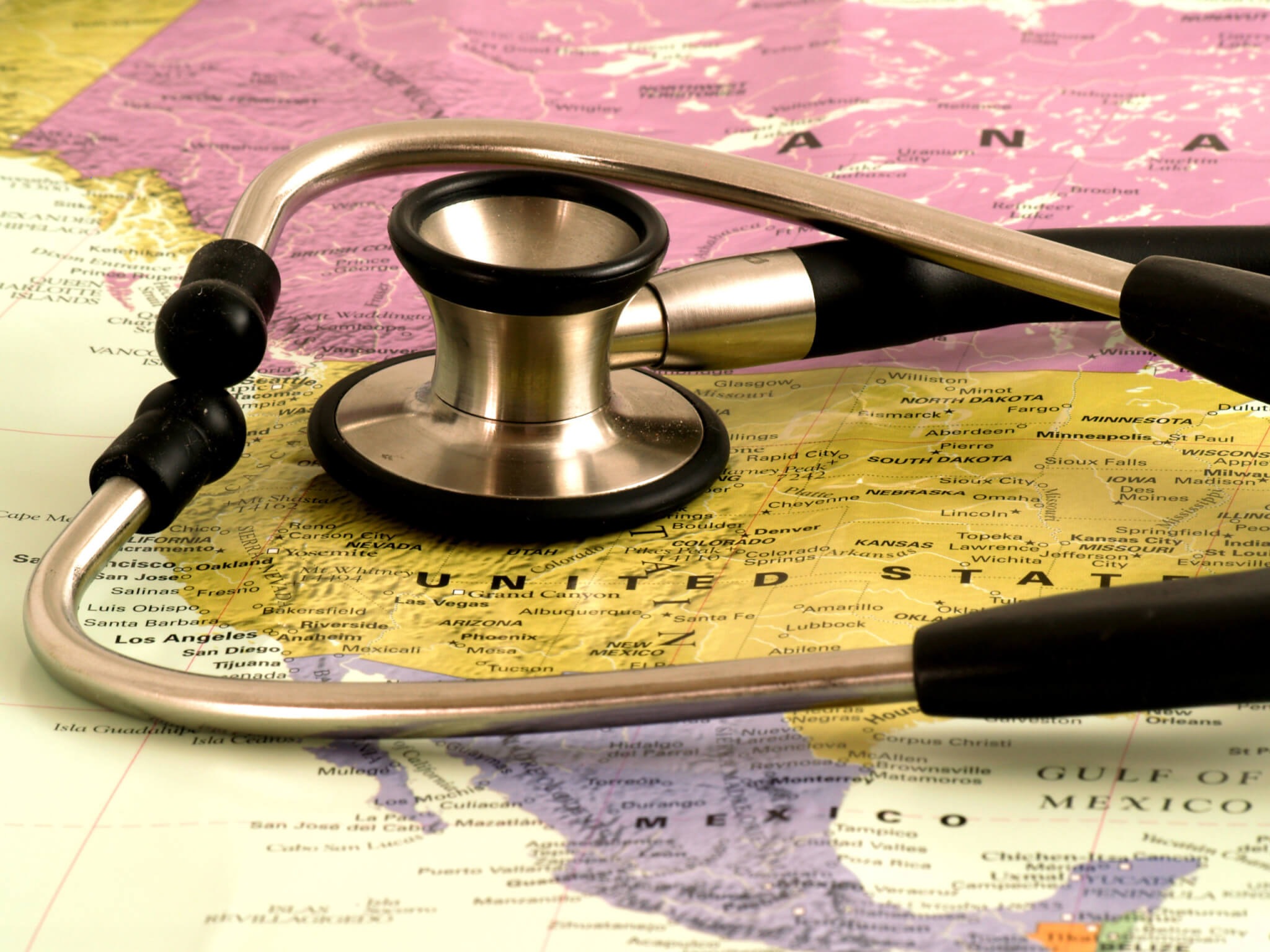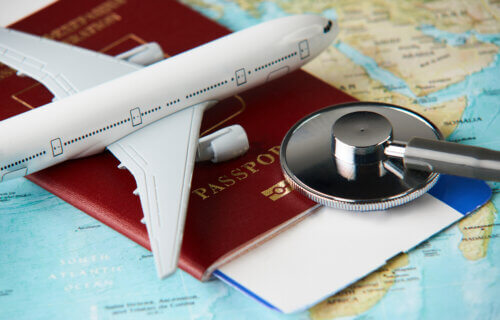Medical tourism is the term to describe international travel for the purpose of receiving medical care. It’s a worldwide, multibillion-dollar market that continues to grow. Millions of U.S. residents travel internationally for medical care each year. Some of the reasons are lower cost, recommendations from friends or family, the opportunities to combine medical care with a vacation, a preference for care from providers of the traveler’s culture, or to receive a procedure or treatment not available in the U.S. (which may be for safety reasons.) Negative reports of infections and other threatening complications and bad jobs in countries other than the U.S. demonstrate that medical tourism is risky.
Common procedures that U.S. medical tourists seek out include dental care, non-cosmetic surgery (such as orthopedic surgery), cosmetic surgery (a major category,) fertility treatments, organ and tissue transplants, and cancer treatment. Some of the more common destinations for U.S. residents include Argentina, Brazil, Costa Rica, Cuba, India, Malaysia, Mexico, Singapore, and Thailand.
Overseas facilities may not maintain accreditation or even provider licensure, track patient-outcome data, or have medical record privacy or security policies. Be aware that the drugs and medical products and devices used in foreign countries might not be subject to regulation. Some drugs may be counterfeit, expired, contaminated, or improperly stored.
Many medical tourists rely on private companies or medical concierge services to find foreign health care facilities. Some American health insurance companies and large employers have alliances with healthcare facilities outside the states.
Risks of medical tourism
All medical and surgical procedures have some risk. Complications can occur no matter where treatment is received. Infectious complications associated with medical procedures outside the U.S. include wound infections, donor-tissue infections, and blood-borne germs, like hepatitis B, hepatitis C, and HIV – all three can be permanent or fatal. The risk of antibiotic-resistant infections may be greater in some countries or regions.
Outbreaks of infections in medical tourists have been reported. Noninfectious complications among medical tourists are like those seen in patients in the United States and include surgical incision dehiscence (the wound spontaneously opens), blood clots, or abnormal shapes after cosmetic surgery.
Medical or surgical complications may require follow-up care from a health care provider in the United States. Medical tourists should request a copy of their medical records and provide these to health care providers for any follow-up care.

Medical tourists also need to be aware of the extra risks associated with traveling while being treated for a medical condition or during recovery after surgery or other procedures.
Air travel and surgery increase the risk of blood clots, including deep vein thrombosis (DVT) and pulmonary emboli (blood clots lodge in the lungs.) travel and surgery together further increase the risks. Commercial aircraft cabin pressures are roughly equivalent to an outside air pressure at 6,000–8,000 ft. above sea level. Medical tourists should not fly for 10 days after chest or abdominal surgery to avoid risks associated with changes in atmospheric pressure.
The American Society of Plastic Surgeons advises people who have had cosmetic procedures of the face, eyelids, or nose, or who have had laser treatments, to wait 7–10 days before flying. The Aerospace Medical Association has published medical guidelines for airline travel that provide useful information on the risks of travel with certain medical conditions.
Medical tourists are also advised to avoid typical vacation activities that can interfere with healing such as sunbathing, drinking alcohol, swimming, taking long tours, or engaging in strenuous activities or exercise after surgery.
Pretravel advice
Medical tourists should consult a travel medicine specialist for advice for their specific health needs, four to six weeks before travel. They should see their primary care provider to discuss their plan to seek medical care outside the United States and to discuss any concerns. Any current medical conditions should be well-controlled, and medical tourists should make sure they have enough medication for the duration of their trip. All medical tourists should be up to date on all routine vaccinations and consider immunization against hepatitis B and hepatitis A viruses before travel.
If they suspect any complication, medical tourists should get immediate medical care, while still traveling or after returning home. Tell healthcare providers about the travel history, medical history, and recent surgeries or medical treatments received during the trip. Getting prompt medical care may lead to early diagnosis and treatment and a better outcome.
Guidance for travelers
Several professional organizations have guidelines that include questions that medical tourists can use when discussing care abroad, with the facility providing the care, with the group facilitating the trip, and with their regular health care provider. Medical tourists should be aware of the guiding principles developed by the American Medical Association and The American College of Surgeons (ACS) have issued similar statements on medical and surgical tourism, with the recommendation that travelers obtain a complete set of medical records before returning home to ensure that details of their care are available to providers in the United States. It helps with continuing care and proper follow-up.
The ACS recommends that medical tourists use internationally accredited facilities and seek care from providers certified in their specialties through a process like the member boards of the American Board of Medical Specialties. The ACS, the American Society for Aesthetic Plastic Surgery, the American Society of Plastic Surgeons, and the International Society of Aesthetic Plastic Surgery all accredit overseas physicians. However, accreditation does not necessarily ensure a good outcome, and medical tourists should do as much advance research as possible on a health care provider and facility they are considering.
Many medical tourism websites market directly to travelers. Those sites may not include full details on the qualifications or certifications of a facility or provider.
For travelers seeking dental care, the Organization for Safety, Asepsis and Prevention provides the “Traveler’s Guide to Safe Dental Care,” with questions to help travelers find a dental clinic and identify potential infection control concerns in a dental clinic.
Before you leave: See your dentist in the U.S. Consider appropriate vaccinations.
Ask the American Embassy or hotel staff to help you find a dentist. You may be able to get recommendations from Americans living in the area.
If the answer to any of these questions is “No,” you may not be safe and should not use that facility:
- Do you use new gloves for every patient?
- Do you sterilize instruments between patients?
- Do you use new needles for each patient?
- Is the office clean?
- Does the staff wash their hands with soap between patients?
- Do they wear gloves for all procedures?
For more resources on Medical tourism: Medical Tourism – Chapter 9 – 2020 Yellow Book | Travelers’ Health | CDC
